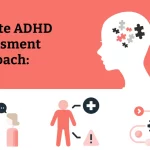
Intermittent fasting for weight loss is one of those constantly recurring topics that pop up in my news feed. Rebadged and repackaged by an unending stream of would-be fitness gurus and authors, intermittent fasting for weight loss should be avoided at all costs.
Before I dive into the reasons why, can I throw in a small bit of history as a means to show you how medical advice can be ignored, even when there is overwhelming evidence in support of it?
Why Weight Loss?
Weight loss is pursued by many individuals for various reasons, primarily to improve their overall health and well-being. Excess weight can increase the risk of developing several chronic conditions, including heart disease, type 2 diabetes, and certain types of cancer. By shedding excess pounds, individuals can reduce these risks and improve their overall health outcomes. Weight loss also often results in increased energy levels, improved mobility, and enhanced self-confidence. Additionally, maintaining a healthy weight can positively impact mental health, as it is associated with reduced symptoms of depression and anxiety. Therefore, weight loss serves as a crucial component of a healthy lifestyle, promoting physical and mental well-being.
What is Intermittent Fasting For Weight Loss?
Back in the 1600s and early 1700s, thousands of sailors died from a killer disease on long voyages. The disease was scurvy. The famous Captain Cook recommended malt and sauerkraut as a cure. Other notable cures were “elixir of vitriol” (a dilute solution of sulphuric acid) and blood-letting. One bizarre cure was applying a piece of turf to the patient’s mouth to counter the “bad qualities of the sea air”.
Along comes James Lind, a surgeon’s mate on the HMS Salisbury. In 1847, Lind carried out some experiments – the details are here in a BBC article – and he discovered that citrus fruits cured scurvy.
The cure for scurvy is Vitamin C.
What’s remarkable is that it took the British Admiralty 42 years to acknowledge this discovery and distribute Vitamin C to its sailors. As the BBC article closes, it points out that this still gives historians cause to debate as to why it took so long.
Ok, so what’s the link between intermittent fasting for weight loss and a history of scurvy?
Dr Maurice Larocque, a recognised world-leading expert on weight management and the founder of the Mental Weight concept that underpins our weight loss programme, has long argued that one of the pillars to effective, safe and long-lasting weight loss is:
Never go longer than four hours between two meals or snacks containing a source of protein.
This is in direct contradiction to the premise of intermittent fasting.
Key Pillars Intermittent Fasting For Weight Loss
In support, he lists three other critical pillars:
- Reduce carbohydrates, especially refined sugars and high fructose corn syrup.
- Eat carbohydrates along with a source of protein.
- Eat a sufficient amount (between 60-100g) of dietary proteins at each meal.
- About intermittent fasting, our bodies are not designed to fast. We are not designed to go long stretches of the day without eating or taking nourishment.
A great way of visualising this is to think of our metabolism as a fire that must never go out. Here at Motivation, we believe in continually stoking that fire to keep it burning.
The reason for this is that on a calorie-controlled diet, the goal is for the body to use energy from fat stores. However, without adequate protein, muscle tissue will be used as well. Protein will protect this lean muscle tissue ensuring faster fat loss, exactly what you want for inch loss and healthy internal organs. (Remember, your heart is a muscle.) This leads to a more favourable body composition which means you can achieve the silhouette you’ve always wanted.
Today, we’ve multiple channels of news and much of it is unregulated. An endorsement by a social media ‘star’ is taken as a seal of approval. That is one of the most worrying trends and one that concerns me.
Intermittent fasting has its advocates but like all other quick-fix dieting programmes, unless you address the underlying reasons behind the overeating, you will end up back at square one. Frustrated and disappointed.
Our initial assessment, which costs only €25, is a great place for you to find out how you can get to grips with your weight loss issues once and for all. There is no deprivation or lack of food in our programmes. You will eat often and healthily, in a way that protects your body while you lose weight fast.
What is a BMI calculator?
The BMI calculator is a tool used to estimate an individual’s body fat based on height and weight. It provides a numerical value that categorizes individuals into different weight status categories, such as underweight, normal weight, overweight, or obese. The BMI calculation formula is BMI = (weight in kilograms) / (height in meters squared).
The resulting BMI value is then compared to standard BMI ranges to determine the weight status. While BMI is a convenient screening tool, it does have limitations as it does not directly measure body fat percentage or distribution. Factors such as muscle mass, bone density, and individual variations are not taken into account. Therefore, it is important to consult with a healthcare professional for a comprehensive assessment of one’s health and weight status.






